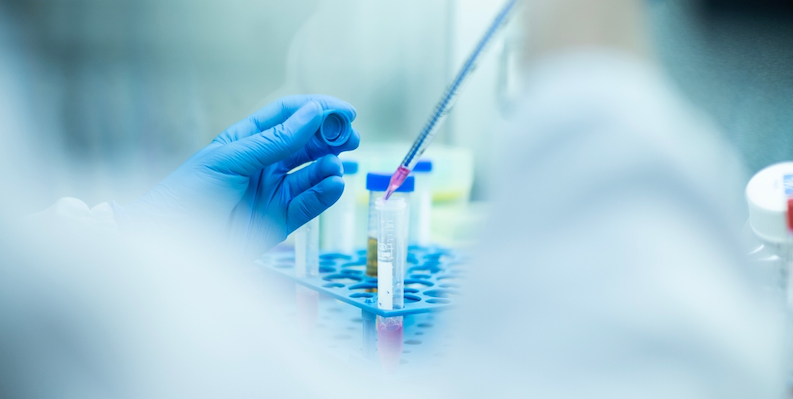Minnesota-based startup FastWave Medical believed it had hit a breakthrough when a Chinese conglomerate helped close its $40 million Series A round. But the deal soured quickly.
The investor not only failed to provide the promised capital but also blocked Fastwave’s U.S. fundraising efforts, withheld $500,000 for new devices, and allied with the startup’s direct competitor in China.
As a result, FastWave’s core IP, over 60 employees, and its intravascular lithotripsy (IVL) technology for artery calcification were put at risk.
Why U.S. startups turn to Chinese investors
Most U.S. VCs are hesitant to invest in early-stage biotech startups because of the high risks.
For its Series A, FastWave Medical aimed to secure direct investment from multinational corporations’ balance sheets — a strategy increasingly common in the medtech sector.
The breakthrough came when Grand Pharmaceutical Group was introduced through one of FastWave’s co-founders.

“That lent a layer of inherent trust to the relationship,” said Scott Nelson, co-founder and CEO of FastWave Medical.
“It also provided reassurance regarding the apparent risks and the broader implications of accepting Chinese capital — including regulatory scrutiny and geopolitical tensions.”
Listed on the Hong Kong Exchange, Grand Pharmaceutical had a track record of investing in early-stage cardiovascular startups and moved quickly to sign a term sheet for FastWave’s Series A round.
The hidden costs of the wrong funding
In late 2022, Grand Pharmaceutical pulled back on its funding commitments to FastWave.
The company also withheld payments for devices it had commissioned as part of China’s National Medical Products Administration (NMPA) regulatory pathway.
“We invested millions into this effort, and Grand Pharmaceutical had agreed to cover over $500,000 for those devices,” said Nelson. “That payment was held back for 18 months.”
Since 2022, the investor has actively blocked FastWave’s attempts to raise new equity financing in the U.S.
The founders later discovered that Grand Pharmaceutical quietly formed a strategic alliance with the startup’s direct competitor in China.
“As a founder, you brace yourself for the usual ups and downs of building a company in the life sciences space,” Nelson said. “What we’ve experienced with this particular investor goes far outside typical startup turbulence.”
Grand Pharmaceutical resisted coordinating the filing for FastWave’s laser-based IVL technology, which requires notification to the Committee on Foreign Investment (CFIUS) under U.S. export control regulations.
For over a year, FastWave has been stalled awaiting CFIUS review, relying on short-term debt to survive.
“Investors typically push startups toward milestones that drive real returns,” Nelson said. “Grand Pharmaceutical has done the opposite — actively blocking progress.”
Why capital isn’t neutral: Lessons learned
FastWave’s experience is not unique. Early-stage U.S. biotech startups face more than just regulatory delays and operational hurdles when foreign investors — especially those with ties to China — are involved. VCs warn that the risks can extend to long-term strategy.
“I thought CFIUS had effectively blocked Chinese investors from U.S. biotech, but many funds — often rebranded — are still active,” said Allan Gobbs, managing partner at ATEM Capital, a New York-based life sciences venture firm. “I remain cautious. The technical expertise of Chinese investors is strong, but their business commitments and reliability raise concerns.”
Recent controversies involving Chinese biotech firms BGI Group and WuXi AppTec have drawn U.S. scrutiny over data privacy, government ties and dual-use technologies
WuXi AppTec has been accused of transferring sensitive U.S. intellectual property to China. BGI has faced scrutiny for collecting U.S. genetic data that critics say could aid the Chinese military.
In September 2024, the House passed the BIOSECURE Act, a measure that would bar federal contracts with certain Chinese biotech firms and their partners. The bill still requires Senate approval and the president’s signature.
The larger question is who will step in to fill the funding gap for early-stage biotech if Chinese capital dries up.
Early-stage biotech funding in the U.S. plunged from a record $5.5 billion in the first quarter of 2020 to just $900 million in Q2 2025.
According to Ernst & Young’s 2025 Biotech Beyond Borders report, nearly 50% of biotech companies could close their doors by the end of the year due to financial constraints.
Grand Pharmaceutical Group Limited did not respond to multiple requests for comment over a 72-hour period.








